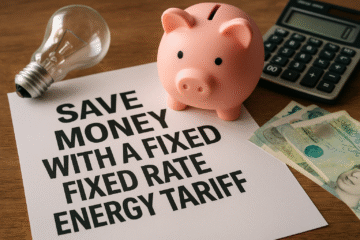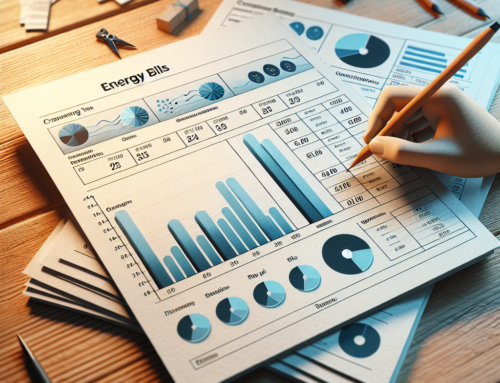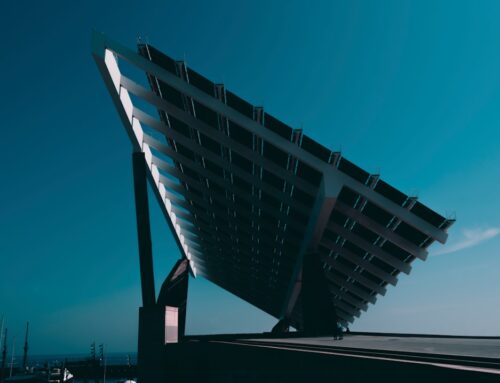Smart meters are the next generation of electricity meters that are designed to provide more accurate and detailed information about your energy usage. Unlike traditional meters, smart meters can communicate with your energy provider in real-time, allowing for more accurate billing and the ability to monitor your usage more closely. These meters use advanced technology to measure your electricity consumption and send this data directly to your energy provider, eliminating the need for manual meter readings. Smart meters also come with in-home displays that allow you to see how much energy you are using in real-time, helping you to make more informed decisions about your energy usage.
Smart meters work by using a combination of wireless communication and advanced metering infrastructure to collect and transmit data about your energy usage. The meters use a secure wireless network to send this data to your energy provider, allowing them to monitor your usage and provide accurate billing. This technology also allows for two-way communication, meaning that your energy provider can send updates and information directly to your meter, such as changes to tariffs or updates on energy-saving tips. Overall, smart meters are designed to provide a more accurate and efficient way of monitoring and managing your energy usage, helping you to save money and reduce your environmental impact.
Monitoring Your Electricity Usage: Tips and Tricks
Once you have a smart meter installed in your home, it's important to take advantage of the detailed information it provides about your electricity usage. One of the best ways to do this is by regularly checking your in-home display, which shows you how much energy you are using in real-time. By keeping an eye on this display, you can identify any spikes in usage and take steps to reduce your consumption, such as turning off unnecessary appliances or adjusting your heating and cooling settings. You can also use the data from your smart meter to track your usage over time, allowing you to identify patterns and make changes to your habits that can help you save money on your energy bills.
Another useful tip for monitoring your electricity usage with a smart meter is to use the online tools provided by your energy provider. Many providers offer online portals or apps that allow you to see detailed information about your energy usage, including daily, weekly, and monthly breakdowns of your consumption. These tools can help you to identify areas where you are using more energy than necessary, such as during peak times or when certain appliances are in use. By using these tools regularly, you can gain a better understanding of your energy usage and make informed decisions about how to reduce it.
Setting Realistic Energy Saving Goals with Smart Meters
With the detailed information provided by smart meters, it's easier than ever to set realistic energy-saving goals for your home. One of the best ways to do this is by using the data from your smart meter to identify areas where you are using more energy than necessary. For example, you may notice that your energy usage spikes during certain times of day, or when certain appliances are in use. By identifying these patterns, you can set specific goals for reducing your usage during these times, such as turning off appliances when they are not in use or adjusting your heating and cooling settings.
Another important aspect of setting realistic energy-saving goals with smart meters is to track your progress over time. By regularly monitoring your energy usage and comparing it to previous months or years, you can see how effective your efforts have been in reducing your consumption. This can help you to stay motivated and make adjustments to your goals as needed, ensuring that you continue to make progress towards reducing your energy bills and environmental impact.
Making the Most of Time-of-Use Tariffs
Many energy providers offer time-of-use tariffs, which charge different rates for electricity depending on the time of day. With a smart meter, you can take full advantage of these tariffs by monitoring your usage and adjusting your habits to take advantage of cheaper rates. For example, you may find that electricity is cheaper during off-peak hours, so you can schedule tasks such as laundry or running the dishwasher for these times. By using the data from your smart meter to identify when electricity is cheapest, you can make significant savings on your energy bills.
Another way to make the most of time-of-use tariffs with a smart meter is by using the data provided to identify areas where you can shift your usage to cheaper times. For example, if you notice that you are using a lot of electricity during peak hours, you can make changes to your habits or schedule tasks for off-peak times instead. This can help you to reduce your overall energy costs and make the most of the different rates offered by time-of-use tariffs.
Using Smart Meter Data to Identify Energy-Wasting Appliances
One of the most valuable features of smart meters is their ability to provide detailed information about your energy usage, including which appliances are using the most electricity. By using the data from your smart meter, you can identify any appliances that are using more energy than necessary and take steps to reduce their consumption. For example, if you notice that a particular appliance is using a lot of electricity, you can consider replacing it with a more energy-efficient model or adjusting your usage habits to reduce its impact on your bills.
Another useful way to use smart meter data to identify energy-wasting appliances is by monitoring your usage over time and comparing it to previous months or years. This can help you to see if there are any changes in your consumption that could be attributed to specific appliances, allowing you to take action if necessary. By regularly checking the data from your smart meter, you can stay on top of any changes in your energy usage and make informed decisions about how to reduce it.
Smart Meter Apps and Tools for Easy Monitoring and Control
In addition to in-home displays and online portals, many energy providers offer apps and tools that allow you to monitor and control your energy usage from anywhere. These apps provide detailed information about your electricity consumption, including real-time updates on how much energy you are using and how it is being used. They also often come with features that allow you to set goals for reducing your usage, receive alerts about spikes in consumption, and even control certain appliances remotely. By using these apps regularly, you can stay on top of your energy usage and make informed decisions about how to reduce it.
Another useful feature of smart meter apps and tools is their ability to provide personalised recommendations for reducing your energy usage. By analysing the data from your smart meter, these apps can provide tailored advice on how to save money on your bills and reduce your environmental impact. This could include tips on adjusting your heating and cooling settings, replacing old appliances with more efficient models, or making changes to your habits that can help you save money on your energy bills.
Overcoming Common Smart Meter Challenges and Pitfalls
While smart meters offer many benefits for monitoring and managing your energy usage, there are also some common challenges and pitfalls that users may encounter. One of the most common challenges is understanding how to interpret the data provided by smart meters and make informed decisions about reducing consumption. To overcome this challenge, it's important to take advantage of the resources provided by your energy provider, such as online tools, apps, and customer support services that can help you understand how to use the data from your smart meter effectively.
Another common challenge with smart meters is ensuring that they are installed correctly and functioning properly. If you have any concerns about the accuracy or reliability of your smart meter, it's important to contact your energy provider as soon as possible to address any issues. By staying proactive about monitoring and maintaining your smart meter, you can ensure that it continues to provide accurate information about your energy usage and helps you make informed decisions about reducing consumption.
In conclusion, smart meters offer a valuable tool for monitoring and managing your energy usage, providing detailed information about how much electricity you are using and how it is being used. By taking advantage of the data provided by smart meters and using the tips and tricks outlined in this article, you can set realistic energy-saving goals, make the most of time-of-use tariffs, identify energy-wasting appliances, and use apps and tools for easy monitoring and control. While there may be some common challenges and pitfalls associated with smart meters, staying proactive about addressing any issues can help ensure that they continue to provide accurate information about your energy usage. Overall, smart meters offer a valuable tool for reducing consumption, saving money on bills, and reducing environmental impact.






